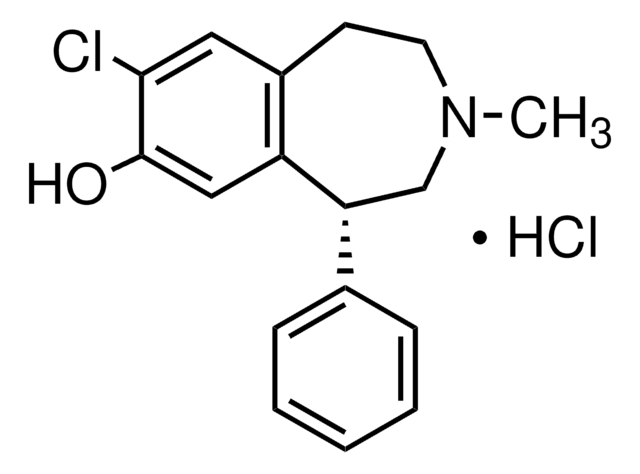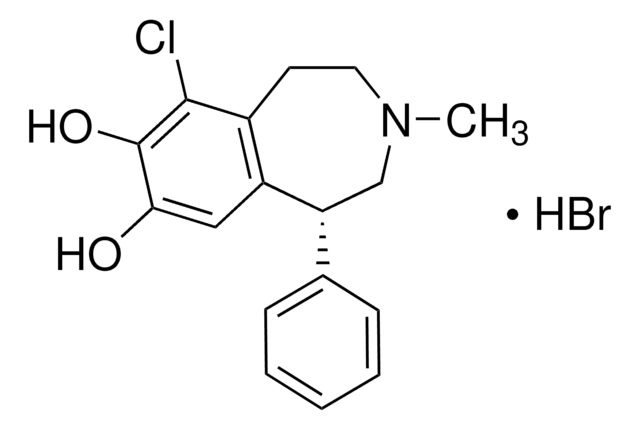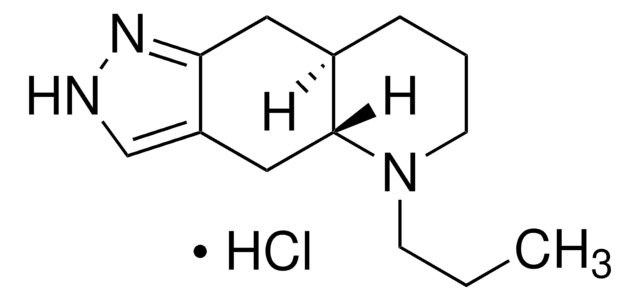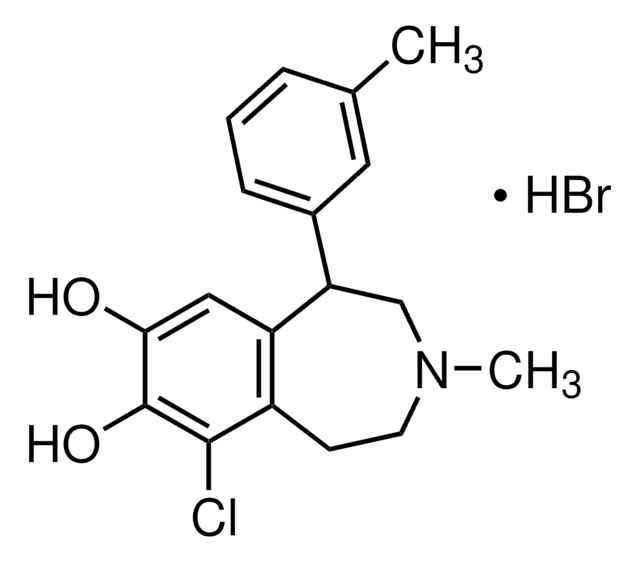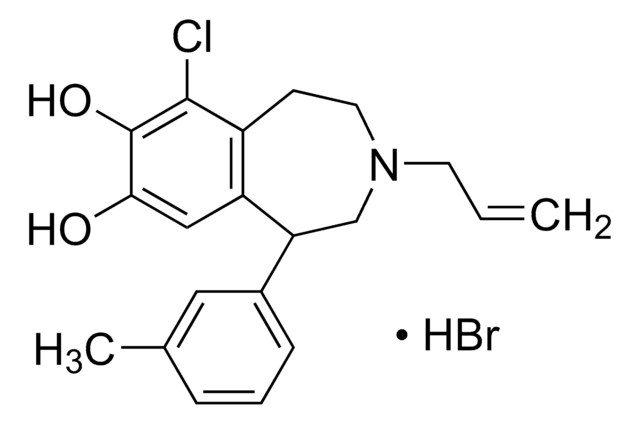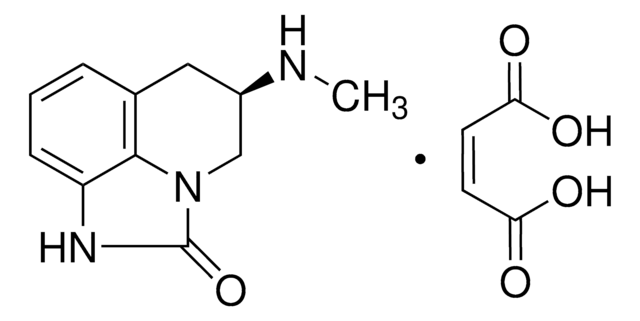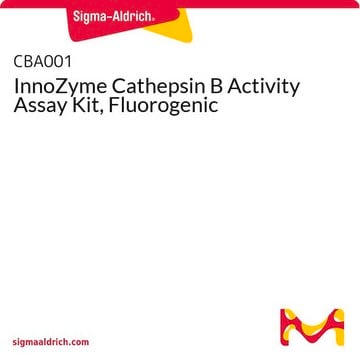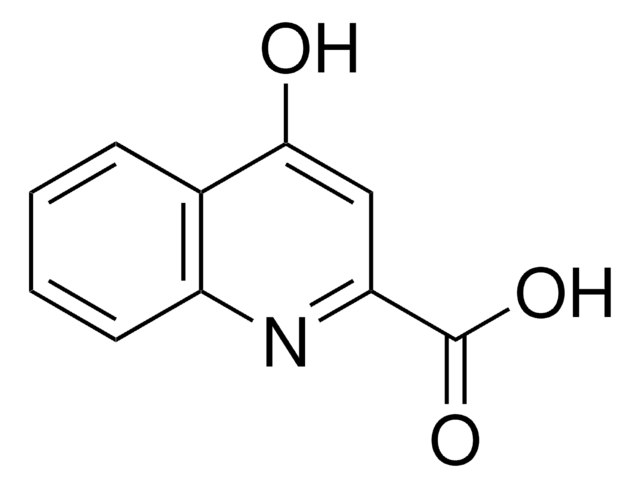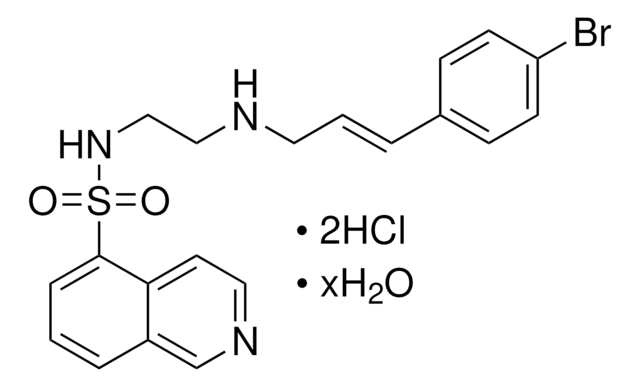S179
R(+)-SKF-81297 hydrobromide
≥98% (HPLC), solid
Synonym(s):
R-(+)-6-Chloro-7,8-dihydroxy-1-phenyl-2,3,4,5-tetrahydro-1H-3-benzazepine hydrobromide
About This Item
Recommended Products
Quality Level
Assay
≥98% (HPLC)
form
solid
optical activity
[α]22/D +15.14°, c = 0.52 in DMF(lit.)
storage condition
desiccated
protect from light
color
white to off-white
solubility
H2O: 6 mg/mL
DMSO: soluble
SMILES string
Br[H].Oc1cc2[C@H](CNCCc2c(Cl)c1O)c3ccccc3
InChI
1S/C16H16ClNO2.BrH/c17-15-11-6-7-18-9-13(10-4-2-1-3-5-10)12(11)8-14(19)16(15)20;/h1-5,8,13,18-20H,6-7,9H2;1H/t13-;/m1./s1
InChI key
RMIJGBMRNYUZRG-BTQNPOSSSA-N
Application
- to test it effect on the spike firing in rat retinal ganglion cells
- in human embryonic kidney (HEK) 293T cells
- to test its inhibitory effect in microglial cells
Biochem/physiol Actions
Storage Class Code
11 - Combustible Solids
WGK
WGK 3
Flash Point(F)
Not applicable
Flash Point(C)
Not applicable
Personal Protective Equipment
Regulatory Listings
Regulatory Listings are mainly provided for chemical products. Only limited information can be provided here for non-chemical products. No entry means none of the components are listed. It is the user’s obligation to ensure the safe and legal use of the product.
JAN Code
S179-VAR:
S179-5MG:
S179-BULK:
Choose from one of the most recent versions:
Certificates of Analysis (COA)
Don't see the Right Version?
If you require a particular version, you can look up a specific certificate by the Lot or Batch number.
Already Own This Product?
Find documentation for the products that you have recently purchased in the Document Library.
Customers Also Viewed
Our team of scientists has experience in all areas of research including Life Science, Material Science, Chemical Synthesis, Chromatography, Analytical and many others.
Contact Technical Service